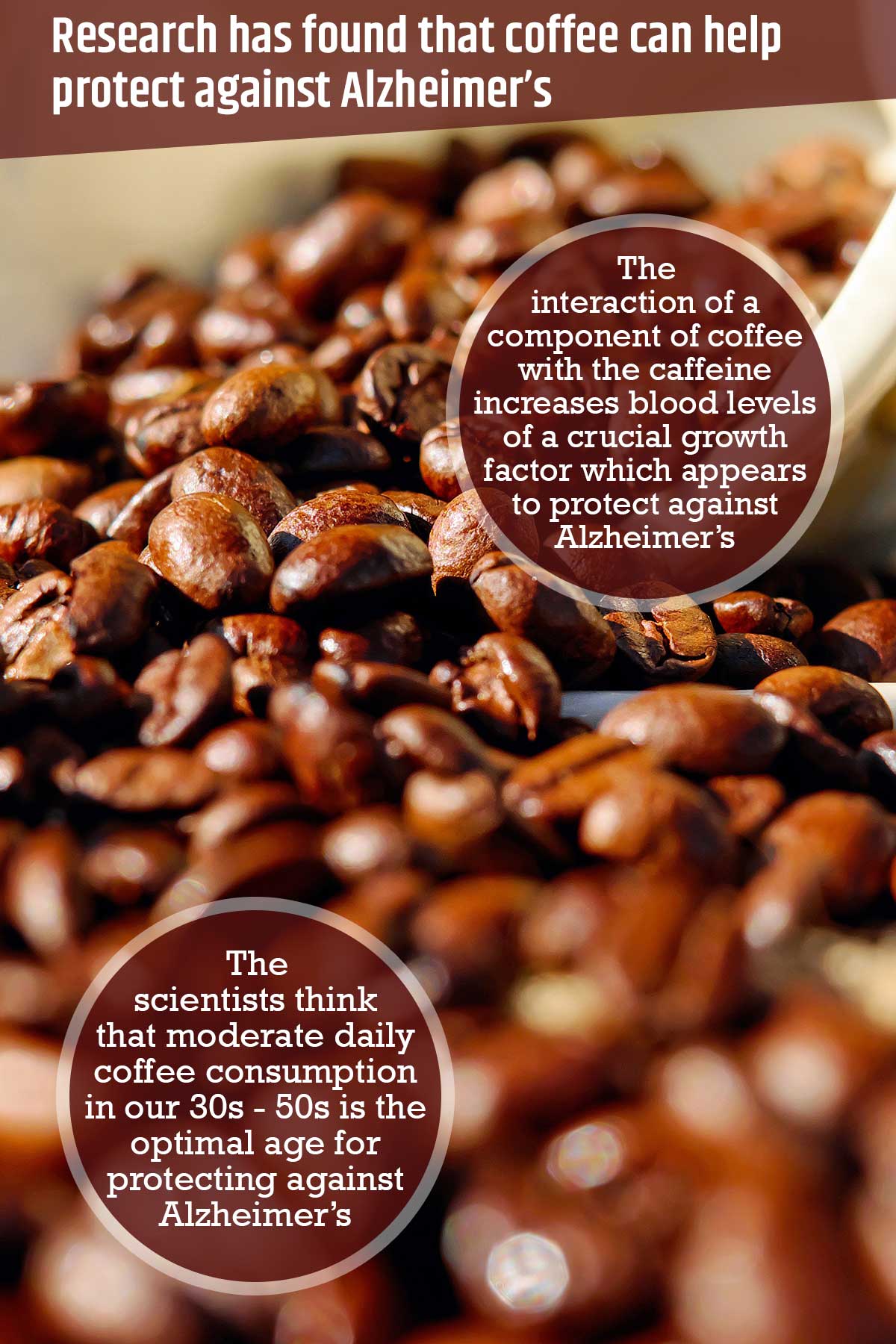The interaction of a component of coffee with the caffeine increases blood levels of a crucial growth factor which appears to protect against the process of Alzheimer’s disease.1✅ JOURNAL REFERENCE
PMID: 21422521
Making use of mice bred for developing Alzheimer’s like symptoms, researchers provide evidence that caffeinated coffee protects against the disease which isn’t possible with other beverages that contain caffeine or decaffeinated coffee.
The research doesn’t diminish the importance of caffeine for protecting against Alzheimer’s. It merely demonstrates that caffeinated coffee causes a rise in blood levels of a growth factor known as granulocyte colony stimulating factor (GCSF), which is significantly reduced in individuals with Alzheimer’s and shown to improve memory in mice with Alzheimer’s.
In the study, the effects of decaffeinated and caffeinated coffee were compared to those of caffeine on it’s own.
In both mice with Alzheimer’s and normal mice, caffeinated coffee treatment significantly improved GCSF blood levels; neither decaffeinated coffee nor caffeine alone had this effect.
Since they made use of only “drip” coffee, the researchers caution they don’t know if “instant” caffeinated coffee gives a similar GCSF response.
The increase in levels of GCSF is significant, because the study also revealed that long-term coffee treatment improves memory in mice with Alzheimer’s.
Increased GCSF levels as a result of coffee intake were linked to better memory. The scientists identified 3 ways that GCSF appears to enhance memory performance.
Bone marrow stem cells are recruited by GCSF to go into the brain and take away the harmful beta-amyloid protein which starts Alzheimer’s. GCSF also makes new brain cell connections as well as increasing the creation of new brain neurons.
These 3 actions can complement the capability of caffeine to suppress beta amyloid production within the brain.
Even though this research was carried out in mice, the scientists revealed that they’ve collected clinical evidence of the ability of caffeine/coffee to offer humans protection against Alzheimer’s.
For most individuals, coffee is safe to drink in moderate quantities of 4 to 5 cups a day, which seems necessary to offer protection against Alzheimer’s.
The scientists previously revealed this amount of caffeine/coffee consumption was required to counteract the memory impairment and brain pathology in mice with Alzheimer’s.
1½ – 2 cups of coffee each day is consumed by the average American, somewhat less than the quantity the scientists consider to offer protection against Alzheimer’s.
The scientists think that moderate daily coffee consumption in our 30s – 50s is the optimal age for protecting against Alzheimer’s, though starting even in older age seems to offer protection.
The conclusion of the study is that the best source of caffeine for counteracting cognitive decline in Alzheimer’s is coffee because caffeine synergizes with the unidentified component to increase levels of GCSF.
Other sources of caffeine, like tea, energy drinks and carbonated drinks would not protect against Alzheimer’s like coffee does.
Coffee also has many ingredients besides caffeine that offer potential cognitive benefits against Alzheimer’s. Coffee is high in anti-inflammatory compounds which may also offer protection against Alzheimer’s.
Apart from coffee, 2 other lifestyle choices, cognitive and physical activity, seem to lower the risk of dementia.
The combination of regular mental and physical exercise with moderate coffee consumption appears to be to be an excellent multi-faceted approach to lowering or delaying Alzheimer’s risk.



